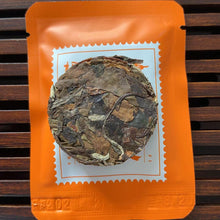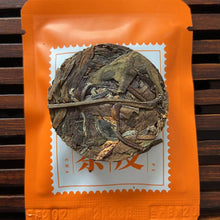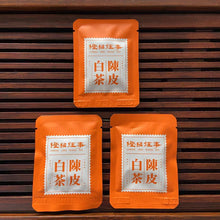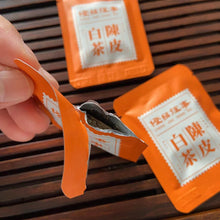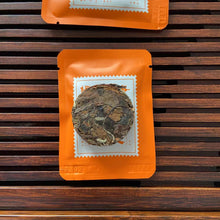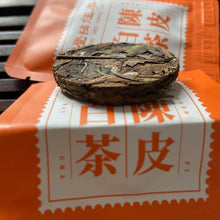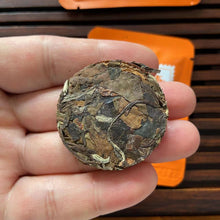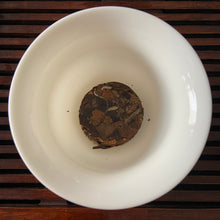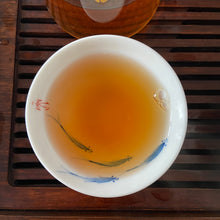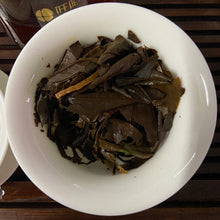
- Made from sliced Chen Pi (Tangerine Peel) from its famous origin, Xin Hui in Guangdong province, and aged Bai Cha (White Tea - Shou Mei) produced in 2016 in Fu Ding, Fujian province.
- The taste initially presents a subtle sweetness, followed by a pungent and bitter aftertaste. In Chinese herbology, it is characterized as having a warm attribute.
- (From Wikipedia: Chenpi - Wikipedia)
-
Both Chen Pi and Bai Cha possess a refreshingly light sweetness, reminiscent of spring water. In this mini cake, their combined sweetness is enhanced, becoming stronger and more impressive.
-
In recent years, Chen Pi has gained increasing popularity in the tea industry, despite its traditional roots as a Chinese medicinal product. In domestic markets, such as the Fang Cun tea market, it is prominently featured on shelves and tea tables in many stores. It is commonly consumed on its own using the Gongfu brewing method, or brewed in a glass kettle for health purposes or appreciation. Additionally, it is blended with other teas like Sheng/Shou Puerh tea or White tea, as seen in this mini cake and other products. As the tea industry evolves, many innovative and sometimes unconventional products emerge, some of which become mainstream. Chen Pi mixed tea products are a notable example of this trend.
-
As I write these words, I am savoring this tea steep by steep using the Gongfu method. It is an interesting product from a reputable source that shares my ideology and principles regarding tea, health, and business.
-
This tea comes highly recommended for enhancing the tea-drinking experience.










